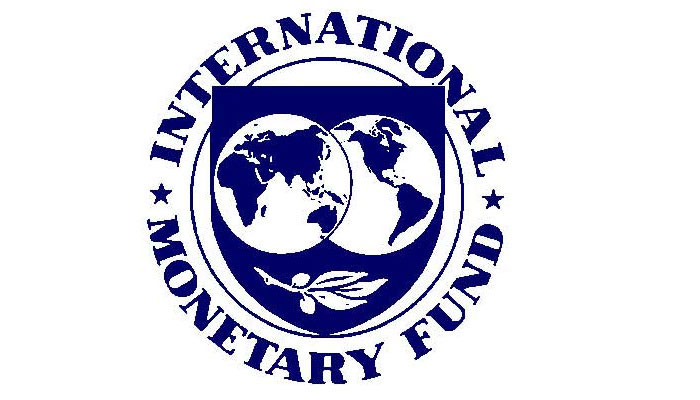IMF lowers China growth forecast to 7.9pc for 2021
Beijing: The International Monetary Fund (IMF) on Friday lowered its 2021 growth forecast for China to 7.9 percent, following a year of "significant human and economic costs" inflicted by the Covid-19 crisis.
The figure is slightly below the 8.2 percent the IMF earlier predicted, although China has been pegged as the only major economy likely to expand in the face of the coronavirus.
After a record contraction in the first three months last year due to unprecedented lockdowns and factory closures, the world´s number-two economy has since bounced back.
But the 1.9 percent full-year growth for 2020 that the IMF maintains, if confirmed, will be its worst showing since 1976, just before the start of its economic reform era.
"The Chinese economy continues its fast recovery from the pandemic, helped by a strong containment effort and swift policy actions to mitigate the impact of the crisis," the IMF said in the conclusion of its annual economic consultation with China.
"However, growth is still unbalanced as the recovery has relied heavily on public support while private consumption is lagging," it added. With increased spending to support its economic recovery, China´s general government deficit is projected to rise to 18.2 percent of GDP in 2020, up from 12.6 percent the year before. China´s economy is adjusting to the "pandemic normal", with help from technology and digitalisation of services, but the IMF cautioned that activity is expected to remain below capacity over the medium term.
The warning comes as certain sectors ranging from hospitality to restaurants remain affected by restrictions. "Until end-2021, some restrictions and voluntary social distancing will continue to dampen person-to-person services activity," said the IMF´s report.
IMF said China should maintain some policy support for the economy this year, but steps are needed to spur private demand and achieve more balanced growth over the medium term. China should keep "moderately supportive fiscal and monetary policies until the recovery is on solid ground," the IMF said, although fiscal consolidation will be needed in the medium term to ensure debt sustainability. It said China's fiscal, monetary, and structural policies should aim to strengthen private demand to allow more balanced medium-term growth. China should also improve its macro-fiscal framework and modernise its monetary policy to strengthen the transmission of interest rate policies, the IMF said.
To spur consumption, China should improve its social safety nets to reduce precautionary savings and address income inequality, the IMF said. China should also restructure its banking sector to allow the orderly exit of weaker banks and deepen state-sector reforms to ensure competitive neutrality between state-owned and private firms, the IMF said.
-
 Kanye West's Last Measure To Save Bianca Censori Marriage As He Tries To Salvage Image
Kanye West's Last Measure To Save Bianca Censori Marriage As He Tries To Salvage Image -
 Kim Kardashian Finally Takes 'clear Stand' On Meghan Markle, Prince Harry
Kim Kardashian Finally Takes 'clear Stand' On Meghan Markle, Prince Harry -
 Christina Applegate Makes Rare Confession About What Inspires Her To Keep Going In Life
Christina Applegate Makes Rare Confession About What Inspires Her To Keep Going In Life -
 Patrick J. Adams Shares The Moment That Changed His Life
Patrick J. Adams Shares The Moment That Changed His Life -
 Selena Gomez Getting Divorce From Benny Blanco Over His Unhygienic Antics?
Selena Gomez Getting Divorce From Benny Blanco Over His Unhygienic Antics? -
 Meet Arvid Lindblad: Here’s Everything To Know About Youngest F1 Driver And New Face Of British Racing
Meet Arvid Lindblad: Here’s Everything To Know About Youngest F1 Driver And New Face Of British Racing -
 At Least 30 Dead After Heavy Rains Hit Southeastern Brazil, 39 Missing
At Least 30 Dead After Heavy Rains Hit Southeastern Brazil, 39 Missing -
 Courtney Love Recalls How ‘comparison’ Left Marianne Faithfull ‘broken’
Courtney Love Recalls How ‘comparison’ Left Marianne Faithfull ‘broken’ -
 Pedro Pascal Confirms Dating Rumors With Luke Evans' Former Boyfriend Rafael Olarra?
Pedro Pascal Confirms Dating Rumors With Luke Evans' Former Boyfriend Rafael Olarra? -
 Ghost's Tobias Forge Makes Big Announcement After Concluding 'Skeletour World' Tour
Ghost's Tobias Forge Makes Big Announcement After Concluding 'Skeletour World' Tour -
 Katherine Short Became Vocal ‘mental Illness’ Advocate Years Before Death
Katherine Short Became Vocal ‘mental Illness’ Advocate Years Before Death -
 SK Hynix Unveils $15 Billion Semiconductor Facility Investment Plan In South Korea
SK Hynix Unveils $15 Billion Semiconductor Facility Investment Plan In South Korea -
 Buckingham Palace Shares Major Update After Meghan Markle, Harry Arrived In Jordan
Buckingham Palace Shares Major Update After Meghan Markle, Harry Arrived In Jordan -
 Demi Lovato Claims Fans Make Mental Health Struggle Easier
Demi Lovato Claims Fans Make Mental Health Struggle Easier -
 King Hospitalized In Spain, Royal Family Confirms
King Hospitalized In Spain, Royal Family Confirms -
 Japan Launches AI Robot Monk To Offer Spiritual Guidance
Japan Launches AI Robot Monk To Offer Spiritual Guidance




